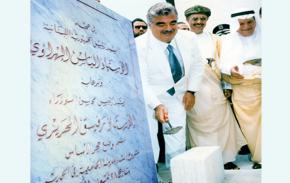إن اسهامات رفيق الحريري الخيرية والإنمائية لا تحصى، وأبرزها المساعدات المتعددة الأوجه لستة وثلاثين ألف طالب جامعي في جامعات لبنان وخارجه
أنت هنا
ESSAYS ON PRIVATE INCOME TRANSFERS AND WEALTH ACCUMULATION IN THE PRESENCE OF ASYMMETRIC INFORMATION
التبويبات الأساسية
Ralph A. EL-CHAMI
|
Univ. |
Johns Hopkins University |
Spec. |
Economics |
Dip. |
Year |
# Pages |
|
Ph.D. |
1992 |
123 |
This dissertation introduces and analyzes the role of the family in shaping the attitude of its offspring towards effort. I explore the relationship between the motivation behind private income transfers and family "work ethics", and its impact on the welfare of future generations of the family. The analysis is carried out in the presence of asymmetric information and earnings uncertainty. The presence of asymmetric information gives rise to the problem of moral hazard due to the inability of the parent to observe the effort of his child in the labor market. Risk arises due to the presence of unobservable "market luck" which gives rise to uncertainty regarding the opportunities of the child in the labor market.
In Chapter Two, within a static framework, the parent declares ex‑ante an implicit contract in the form of a transfer schedule. Flat transfers aimed solely at satisfying the parent's altruistic preferences provide "non‑market" insurance, but present a clear dis‑incentive for effort. On the other hand, incentive transfers that reward the child for high effort reinforce market wages in inducing the child to expend higher effort level. However, the equilibrium transfer depends on the parent's preferences, the child's attitude towards risk and his job‑market opportunity.
In Chapter Three, I explore the situation when the parent and the child are not able to commit to the contracts declared ex‑ante. The fact that the parent is altruistic gives rise to time‑ inconsistent contracts. Because there are ex‑post incentives to renegotiate contracts, I show that transfers are functionally compensatory, and as a result, the equilibrium effort level is lower than in the commitment case.
In Chapter Four, using an overlapping generations framework, I look at the role of effort in determining the wealth distribution within a family. Under the assumption that the parent can pre‑commit to ex‑ante contracts, I show that attitude towards effort either exacerbates or, in some cases, narrows the wealth inequality arising from an inequality in the initial distribution of intergenerational transfers.
In Chapter Five, I re‑examine the welfare implications of the attitude towards effort in the case where the parent cannot commit to contracts declared ex‑ante. I show that the effort level in this case is lower than in the case where the parent can comrnit. As a result, future (generations of this family will expend lower effort and contend with lower wealth.










